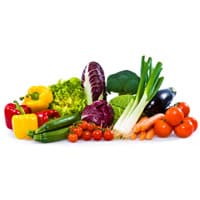There’s no question you are what you eat, and every dentist will tell you the foods you put into your mouth have a profound effect on your level of general dental health. Most people understand eating less sugar is better for teeth — sugar is fundamentally energy for the bacteria that cause plaque, helping them grow. But there are additional foods that provide nutrients that can be beneficial for your teeth.
Foods high in calcium are the most obvious to mention, since calcium helps with healthy teeth and all bones; milk, cheese and other dairy products are high in calcium, as are collard greens, kale, turnip greens, garlic, arugula and spinach. What’s more, the antioxidant vitamins in those veggies can go a long way toward protecting your mouth from bacterial infection.
Acidic foods are rougher on your teeth; carbonated beverages, citrus, wine and even pickles can wear away tooth enamel and lead to issues such as sensitivity and discoloration. Eating the crispest fruits and vegetables — apples, celery, and carrots — can actually help clean teeth, and during the chewing process a fair amount of plaque can be removed.
One interesting study from Canada in 2010 showed the benefits of cranberry juice in oral health; the juice actually dissolved and dislodged bacteria in the mouth. Those bacteria couldn’t adhere to teeth, and reduced the overall bacteria count — meaning people who drank it were far less likely to suffer tooth decay or even gum disease caused by those bacteria.
Notably, some studies have shown blackberries have strong anti-bacterial properties as well, and many people eat them to help kill off the bacteria that might cause periodontal infections; however given the staining properties of blackberry juice, you might be sacrificing a whiter smile for a relatively small gain!
